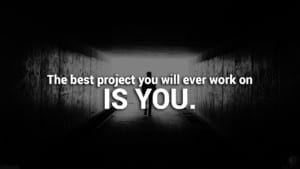Do you ever feel angry, and you don’t know why? Do you find that you are irritable and snapping at people even when you don’t mean it? Also, have you become so grouchy and cranky that you can’t even stand yourself sometimes?
Your irritable nature may be caused by depression. It sounds odd to say that a depressed person is angry, but it makes perfect sense. While you may think that someone who is sad wants to close themselves off from the world and cry in silence, it’s not always that simple.
Research shows that many people become quite irritable when they are depressed. Since being clinically and circumstantially depressed is vastly different, it stands to reason that someone who is still functioning and going to work each day could be quick to lash out at someone. Not everyone isolates, though when you’re boiling angry and even hostile towards others, giving yourself a time out, maybe what you need.
Anger is the Easiest Emotion to Show
Let’s talk about anger. If someone takes your parking space at the supermarket after you’ve waited for it for several minutes, then you wouldn’t break down into tears. Rather, you would probably honk your horn, use an obscene gesture, or yell at them. You want this person to know how mad they have made you.
People often use their grouchy side to express themselves because it’s very natural. A grown man isn’t going to cry over that parking spot, but he would get mad and let the person know that he is mad. The same can be said about despair. It’s quite easy to let someone know when they tick you off, but you’re not going to let them see you cry.
Using Rage to Motivate
Over time, you’ve naturally learned how easy it is to express yourself when you’re upset. Some people feel that their rage helps them stay in control of a situation. For instance, if you manage 20 employees at work, you will find that you need to have effective methods to keep them in line.
How many managers have you seen who motivate others through their harsh words or actions? A boss may come in and slam something across the office because there was an error in a shipment. That person has learned to motivate others to react based on their actions.
If the boss would have spoken in an even tone, then maybe they wouldn’t have been able to build fear and encourage employees to change. It’s not an effective management style, yet it’s used every day. The knee-jerk reaction produces the desired effect.
What that manager failed to say is that their job is on the line, and they’re going to get in trouble. They may be experiencing despair because corporate big shots are breathing down their neck. There are usually reasons for people’s rage.
Symptoms of Depression
When you become depressed, you have several feelings inside that make going through the daily grind almost impossible. While each person is different, some of the most common things one will experience include the following:
•Loss of Interest in Things You Once Loved
•Feelings of Hopelessness or Helplessness
•Suicidal Ideations
•Sleeping Too Much or Too Little
•Isolation
•Unable to Function as You Once Did
•Missing Appointments and Forgetting Things
•Calling off Work Frequently
•Personal Hygiene Suffers
•Drastic Changes in Your Eating Habits
•Moodiness and Irritability
When you feel horrible, then you aren’t going to be all sunshine and smiles. Rather, you’re ready to bite someone’s head off at the first sign of a problem. Is it possible that you are experiencing hopelessness and not even aware?
Clinical Versus Acute Depression
A person who is clinically depressed is someone that has been feeling down for a while. They may have been dealing with the symptoms of this common mental illness for six weeks or more.
However, a person who is experiencing acute depression can have a period of blues that is based on circumstances. If you’ve recently lost a loved one, had a relationship end, got fired from a job, or had your hours cut at work, then it’s reasonable to experience the blues.
Everyone will experience periods in their life when they will be down and out. Thankfully, most learn to cope and pull themselves out of this situation. Consequently, when you cannot shake the feelings of angst, and it continues for longer than a few weeks, then it’s classified as clinical.
Realize that people who are experiencing acute varieties can still function. You may be able to go to work, do the grocery shopping, and have your house clean from top to bottom. Your angst is causing you difficulty, but you continue everyday activities.
Unfortunately, when people are clinically depressed, they are unable to keep going at all. They have a complete shut-down of their system and need professional intervention. Left untreated, those affected can spiral deeper into mental illness or commit suicide.
Doctors Often Prescribe Drugs to Treat Depression (but not so fast, there’s more work to do)
Although depression is one of the most prevalent mental illnesses in America, you can find treatment. If you notice one or more signs and symptoms, then it’s time to talk to your healthcare professional. You needn’t battle despair on your own.
Unfortunately, unhappiness and other mental illnesses still carry a stigma in our society. As in the past, mentally ill patients are often viewed as weak, attention mongers, and those lacking in religious faith. Because of common misconceptions and fear, depressed people may be hesitant to seek treatment.
If you are diagnosed with chronic hopelessness, your healthcare provider may suggest an antidepressant. The good news is that patients have more options with better drugs than decades ago. Medical science continues to make advancements in the understanding and treatment of depression.
Your doctor may prescribe an antidepressant that best fits your needs. Usually, doctors start patients at the lowest therapeutic dose and will titrate as needed. Even though most of these medications may have side effects, the benefits typically outweigh them.
However, ask your doctor also about alternative therapies. Medication can cover up your symptoms. But until you uncover and treat the root of your depressive symptoms, you will not enjoy true healing. Thus, doctors typically prescribe medication and also recommend you see a mental health professional.
Treating Depression with Therapy
Most mental health professionals agree with countless studies suggesting that those depressed are best treated with a combination of drugs and therapy. While medication may help with chemical imbalances in your brain, therapy offers coping strategies and lifestyle change suggestions.
You may be familiar with cognitive behavioral therapy or CBT. Another name for it is psychotherapy. If you are depressed, you may avoid seeing a therapist because of misconceptions. Understanding how CBT works can ease your fears and place you on the right track for treatment.
Psychologists say that we react to things in our world according to our perceptions. If you have a skewed sense of reality about a situation, your reaction may also be unbalanced. CBT seeks to challenge misperceptions, form new opinions, and ways to cope accordingly.
First, your therapist will help you sort out your feelings about situations in your life and how they may have formed. Then, your perceptions will be challenged to understand if they are true or false. You will work together to bring your perceptions into reality, and to modify your behaviors for the best.
CBT has successfully treated clinical despair in millions of people over the years. Along with prescribed medication, it continues to be a valuable tool for mental health professionals. Your primary physician can help you find a licensed therapist who specializes in CBT for mental health issues.
Other Tools to Use with Your Treatment Plan
Did you know that you can alleviate some of your depressed feelings with self-help? For centuries, Eastern practitioners have known the benefits of meditation. Countless scientific studies in East and West concur and recommend it to depressed patients. Your therapist may suggest useful ways for you to meditate at home.
You don’t need to be a guru to benefit from meditation. Find a quiet spot at home or work, close your eyes for a few minutes, and allow your thoughts to pass in and out like clouds. While your mind is at peace, focus on mindful breathing and lifting the fog of despair.
Another complementary tool that CBT professionals suggest is journaling. Be alone with your written thoughts as you discover how you created false statements and how these have affected your life. You may have a moment that will lead you to reality-based thinking and overcoming your hopelessness.
Final Thoughts on the Link Between Anger and Depression
Being depressed is a severe mental disorder that isolates people from their family, friends, and the things they used to enjoy. While some solitude is needful and healthy in your life, total withdrawal from society isn’t good for you.
If you are diagnosed with a mental illness, then surround yourself with a loving network of support. Keep people in your life who offer positive influence and nonjudgmental conversations. A friend or loved one who has also experienced depression can be a valuable supporter.
Even symptoms like unexplained anger may point to a problem with hopelessness and sadness. Be kind to yourself and seek medical treatment if you experience this and other signs and symptoms. You needn’t let misery rob you of the joy you deserve.
The post Science Reveals Anger and Irritability Linked to Depression appeared first on Power of Positivity: Positive Thinking & Attitude.
【Top 10 Malaysia & Singapore Most Beautiful Girls】Have you follow?



